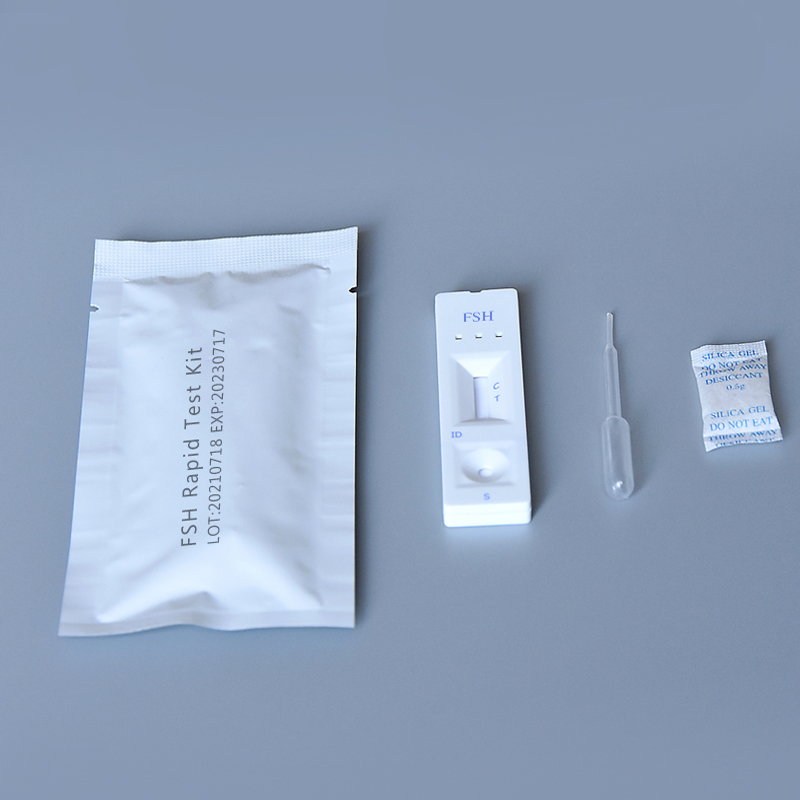Jul . 12, 2024 04:00 Back to list
Self-test for H. pylori infection at home with the H-pylori test
Helicobacter pylori (H. pylori) is a type of bacteria that infects the stomach, and it is estimated to be present in about half of the world's population. This bacteria is commonly associated with stomach ulcers and other gastrointestinal issues. Testing for H. pylori is important for diagnosing and treating related conditions, and one way to do so is through a home H. pylori test.
Home H. pylori tests are becoming increasingly popular as they provide a convenient and non-invasive way to check for the presence of H. pylori in the body. These tests typically involve collecting a sample of saliva, stool, or breath, which is then sent to a laboratory for analysis. The results are generally available within a few days, and can provide valuable information about whether H. pylori is present in the stomach.
There are several benefits to using a home H. pylori test. One of the main advantages is the convenience that it offers. Instead of visiting a doctor's office or laboratory for testing, individuals can simply collect a sample in the comfort of their own home. This can be especially useful for people who live in remote areas or have difficulty accessing healthcare services.
Additionally, home H. pylori tests are relatively easy to use and can be administered without any specialized training

home h pylori test. This makes them accessible to a wider range of individuals, including those who may be uncomfortable with traditional medical procedures. The simplicity of these tests can also help to increase compliance and ensure that individuals receive timely results. Furthermore, home H. pylori tests can be a cost-effective option for those looking to check for the presence of H. pylori. While traditional testing methods may involve multiple appointments and higher fees, home tests are typically more affordable and may be covered by insurance. This can make it easier for individuals to monitor their health and seek treatment if necessary. It is important to note that home H. pylori tests may not be as accurate as tests administered in a clinical setting. Factors such as sample collection and handling can impact the reliability of the results. If a home test indicates a positive result for H. pylori, it is recommended to follow up with a healthcare provider for further evaluation and treatment. In conclusion, home H. pylori tests are a convenient and accessible option for individuals looking to check for the presence of H. pylori in their stomach. While they may not be as accurate as traditional testing methods, they can provide valuable information and help to promote early detection and treatment of H. pylori-related conditions. As with any medical test, it is important to follow up with a healthcare provider for proper diagnosis and management.

home h pylori test. This makes them accessible to a wider range of individuals, including those who may be uncomfortable with traditional medical procedures. The simplicity of these tests can also help to increase compliance and ensure that individuals receive timely results. Furthermore, home H. pylori tests can be a cost-effective option for those looking to check for the presence of H. pylori. While traditional testing methods may involve multiple appointments and higher fees, home tests are typically more affordable and may be covered by insurance. This can make it easier for individuals to monitor their health and seek treatment if necessary. It is important to note that home H. pylori tests may not be as accurate as tests administered in a clinical setting. Factors such as sample collection and handling can impact the reliability of the results. If a home test indicates a positive result for H. pylori, it is recommended to follow up with a healthcare provider for further evaluation and treatment. In conclusion, home H. pylori tests are a convenient and accessible option for individuals looking to check for the presence of H. pylori in their stomach. While they may not be as accurate as traditional testing methods, they can provide valuable information and help to promote early detection and treatment of H. pylori-related conditions. As with any medical test, it is important to follow up with a healthcare provider for proper diagnosis and management.
Latest news
-
Malaria Pf Ag Rapid Test Kit - Quick & Accurate Detection
NewsAug.11,2025
-
Accurate Cardiac Marker CK-MB Rapid Test for Quick Results
NewsAug.10,2025
-
Premium Empty ABS Plastic Cassette for Test Strips
NewsAug.09,2025
-
Sterile Urine Cup: Accurate Specimen Collection for Labs & Home
NewsAug.08,2025
-
Malaria Pf/Pan Ag Rapid Test Kit for Fast, Accurate Diagnosis
NewsAug.07,2025
-
Rapid Canine Corona Test: Fast & Accurate Results
NewsAug.06,2025

